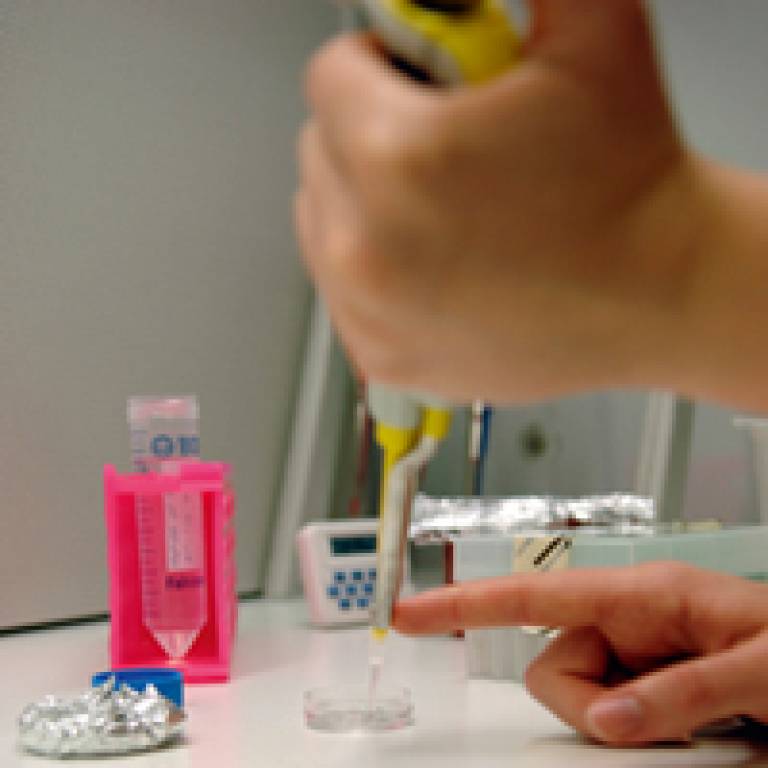New study into childhood stroke launched
5 August 2009
Link:
 ucl.ac.uk/ich" target="_self">UCL Institute of Child Health
ucl.ac.uk/ich" target="_self">UCL Institute of Child Health
Dr Despina Eleftheriou (UCL Institute of Child Health) is leading a new study that aims to develop a blood test to help identify children who are at risk
of multiple strokes, and will also investigate the role of inflammation
or injury to blood vessels in causing stroke.
A stroke is a brain attack that occurs when the blood supply to part of the brain is cut off. Without a blood supply, brain cells can be damaged or destroyed. Hundreds of children have strokes every year, and childhood stroke is one of the top ten causes of childhood death.
Approximately half of the children in the UK who have a stroke each year have an underlying medical condition, such as sickle cell anaemia or a heart problem, that increases their risk of having another stroke. The other half of children who suffer a stroke are apparently healthy, and the stroke may result from problems with blood clotting or infection.
Strokes can occur in newborn babies and up to one in five children who have had a stroke will have further strokes.
Stroke results in long-term problems in two-thirds of survivors
including movement or learning difficulties, or other health problems.
The study, led by Dr Eleftheriou, will be carried out at the UCL Institute of Child Health (ICH) and Great Ormond Street Hospital for Children NHS Trust (GOSH). It will last for three years.
It will involve 60 children who have had strokes, aged from 16 months to 16 years. Blood samples will be taken from the children, and will be analysed for the presence of markers, found in the blood when blood vessels in the brain are damaged. The levels of these markers could help to predict which children are likely to have further strokes.
Dr Despina Eleftheriou, the lead researcher and a Clinical Fellow at the UCL ICH and GOSH, was awarded a Research Training Fellowship grant from medical research charity Action Medical Research. She said: "I was prompted to start this project while working at Great Ormond Street Hospital and seeing so many young children having further strokes without being able to predict the likelihood of this happening. I hope that by the end of the study, we will have developed a blood test to help us identify which children are at greatest risk of further strokes and also have a better understanding of the role of inflammation in causing stroke."
UCL context
With Great Ormond Street Hospital for Children NHS Trust, the UCL Institute of Child Health is the largest centre for paediatric research outside the US and plays a key role in training children's health specialists for the future.
Great Ormond Street Hospital for Children NHS Trust, UCL, Moorfields Eye Hospital NHS Foundation Trust, the Royal Free Hampstead
NHS Trust and UCL Hospitals NHS Foundation Trust (UCLH) together make up UCL Partners, designated one of the UK's first academic health science centres by the Department of Health in March 2009.
UCL Partners will bring together the combined skill and expertise of its clinicians and researchers to focus on child health, eyes and vision, immunology and transplantation, infectious diseases, neurological disorders, women's health, cardiovascular research and cancer.
Related news
UCL podcast: Professor Anthony Costello on 'Fatal Neglect' child health symposium
UCL relaunches innovative MSc in Global Health & Development
 Close
Close

